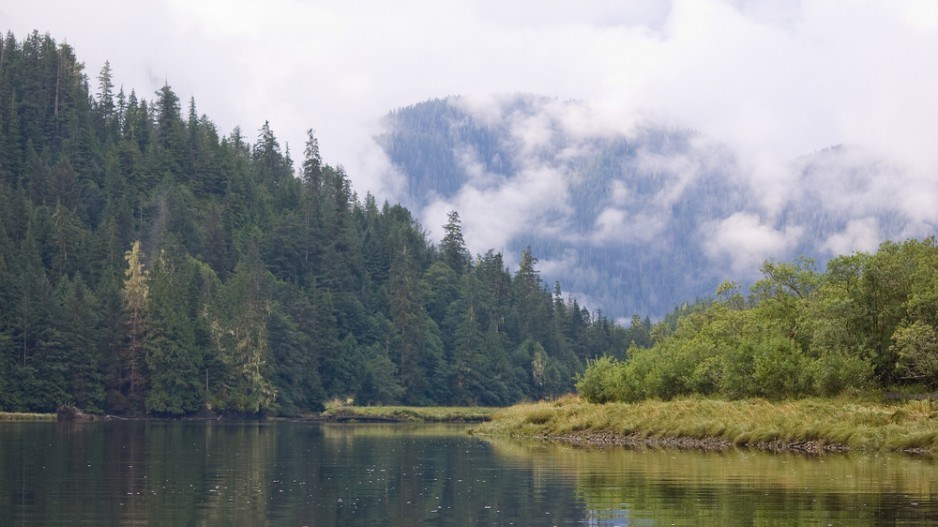After 20 years of conflict, the British Columbia forest industry and leading environmental groups say they have reached a final agreement between them on how much of the Great Bear Rainforest is to be conserved and how much is to be logged.
The agreement is set out in a number of recommendations that have been forwarded to the province and coastal First Nations by the Joint Solutions Project, a collaboration between environmentalists and industry aimed at reducing conflict in the Great Bear Rainforest.
The agreement describes how the forest companies can maintain commercial harvesting of timber while preserving 70% of the region's old-growth forests.
Environmentalists and the industry began working together almost 14 years ago to find a way out of what had been termed the War In The Woods. However, the agreement reached Wednesday still needs to be ratified by Victoria and the region's 27 First Nations before being put into practice.
It is believed to be a unique example globally of industry and environmentalists developing a solution that both preserves ecological values while maintaining employment.
"It's not every day that environmental groups and big forestry businesses put forward joint recommendations that are good for the forests and fair to the forest sector in the region," said Valerie Langer, of ForestEthics Solutions. Langer was negotiator for the eco groups.
"Collaboration has been the cornerstone in this significant achievement," said Ric Slaco, vice-president of forest company Interfor and chair of the industry group Coast Forest Conservation Initiative. "The outcome is that we have a commercial land base on which we can operate. We've got certainty.
"Once completed, this agreement will provide greater economic certainty for our communities, marketplace recognition for our products, and support additional investment in the region in the years ahead."
Slaco stressed that the recommendations involve complex issues of land use and that it is now up to the province and the region's 27 First Nations to review them. Government and First Nations have also been engaged in their own joint decision-making process for the region.
Logging in the Great Bear Rainforest is to be according to ecosystem-based management. Its principles are set out in the agreement, but in broad terms it means maintaining ecosystem integrity while ensuring human and community well-being through economic activity.
Balancing those goals has been a difficult task.
Langer said there has been been "anticipation from around the world," to see the model of joint industry-environmental collaboration succeed.
"Our focus now will be working with the province and First Nations to make sure we come through the final process with a win we can all celebrate."
The Great Bear Rainforest is one of the largest tracts of temperate rainforest on Earth, comprising 64,000 square kilometres stretching from Toba Inlet in the south to the Alaskan border in the north. It is rugged and mountainous. Of that total area, the forest industry has agreed to conduct its harvesting operations on 500,000 hectares.
Wednesday's announcement marks the end of a conflict that began in 1995 with environmental activists chaining themselves to logging equipment in remote rainforest sites. The War In The Woods attracted international attention to the region, at one point prompting then-premier Glen Clark to label the eco-activists as "enemies of B.C." Many of those same activists are now making the recommendations to the province that could end the conflict.
The collaboration began when major customers of B.C. forest products started demanding that the industry and the eco-groups resolve their dispute. They were tired of buying products with protesters hanging off the back, said Bill Dumont, who at the time was chief forester of Western Forest Products.
The two sides joined in what became a unique social and ecological experiment: they would co-operate through the Joint Solutions Project.
In return, the forest companies – Interfor, Western Forest Products, Catalyst Paper, Howe Sound Pulp & Paper and the provincial agency B.C. Timber Sales – said they would defer logging in contested areas until reaching a final agreement.
Representatives from eco-groups - Greenpeace, the Sierra Club and ForestEthics - agreed to end their campaigns against logging until a final agreement is reached.




